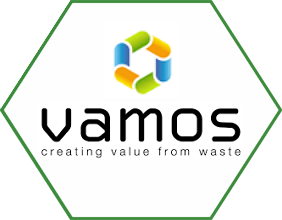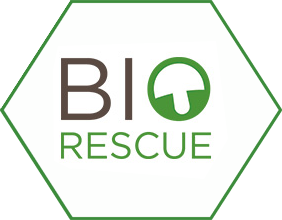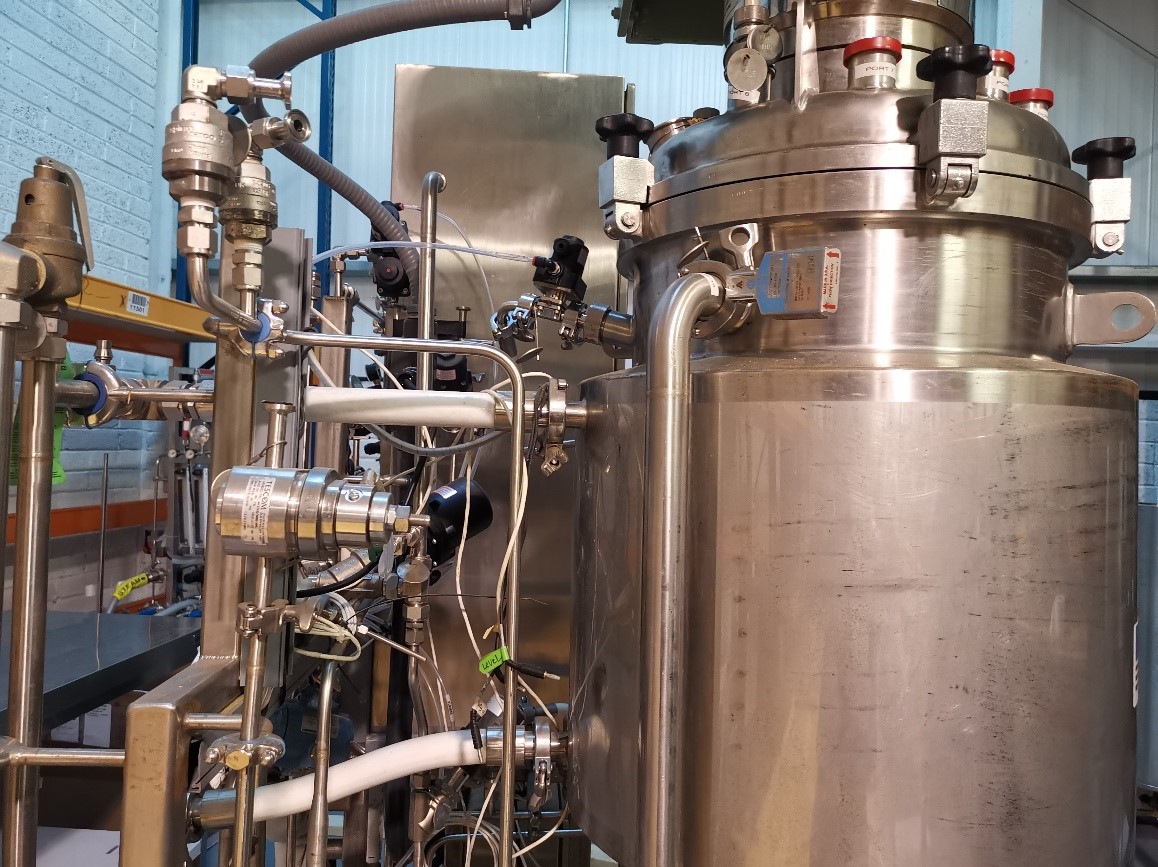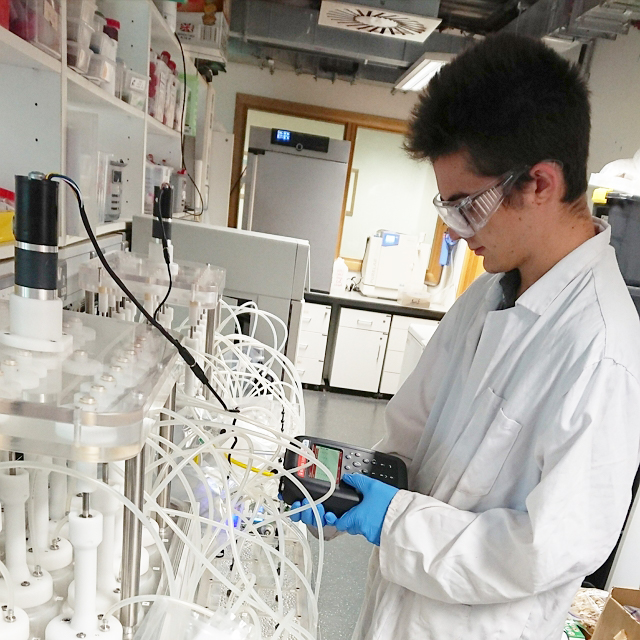HORIZON-JU-CBE-2024-RIA-02 – Biotech routes to obtain bio-based chemicals/ materials replacing animal-derived ones
Background
Celignis is an SME that was spun-out from an EU research project (the FP7 advanced biofuels project DIBANET) that was written and coordinated by Celignis's founder Daniel Hayes. It has now been over ten years since the end of that project and over that time Celignis has grown in size and reputation and now occupies a valuable niche as being the premier analytical and bioprocess development provider to clients in the biomass sector. We provide a wide range of compositional analysis services and bioprocessing expertise to a diverse array of customers (including SMEs, multinationals, and universities) looking to utilise biomass feedstocks, residues and wastes for the production of biobased products, biofuels, and energy.
In April 2023 Celignis joined the Bio-based Industries Consortium (BIC) as a Full Industry SME Member, meaning that we can contribute to the strategic direction and future calls of the CBE-JU and that Celignis is an eligible partner for all CBE-JU actions. The CBE requires that any Large Industry or SME partner in Innovation Action (end TRL 6/7) or Flagship (end TRL 8) projects is a BIC member.
"Celignis had successful proposals in over 40% of the CBE-JU Innovation Action topics in 2023. Our Full-Industry BIC membership and extensive scaled-up bioprocessing capabilities make us particularly suited to participation in IA proposals"
- Engineered polysaccharide composites for replacement of animal derived products in the clothing and comfort sectors -
The main animal-derived products used in clothing and upholstery are leather, fur, and feathers.
Leather is derived from a variety of animals but mostly from cows, whilst fur tends to come from
sheep/lamb/lama and feathers from ducks or geese.
Though these animal-derived products are serving the fashion sector, their main purpose is to provide comfort
in extreme weather conditions. Synthetic faux leather and furs provide the fashion look but struggle to
compete with the functional properties of animal-derived products in terms of durability and functionality.
Celignis through an internally-funded project has developed seaweed polysaccharide derived leather and foams/aerogels that have the potential to replace leathers and feathers. The leathers show good flexibility and self-healing properties but improvements are needed in terms of hydrophobicity. The aerogels/foams that were produced showed high porosity, low density, and excellent thermal resistance. Celignis is keen to further improve these products, especially improving the hydrophobicity without negatively impacting the thermal conductivity and self-healing properties. In addition to this, Celignis is interested to develop similar products from the polysaccharides of terrestrial plants.
- Microbial and/or engineered plant polysaccharides to replace animal-derived
gelatin - Gelatin is widely-used in the food sector in desserts, yogurts, food coatings, and as a clarifier for beverages
(e.g. beer, juices). Gelatin is unique for its gelling properties and surface properties, providing thermo-reversible
gels and a melt-in-mouth feel, which its alternatives struggle to achieve. Many polysaccharides or gums that are being
investigated in their native form, without any modifications, are not meeting the targets of food industry.
Celignis propose the use of enzymes for engineering plant- and microbial-derived polysaccharides. Debranching, or removing functional groups on the carbohydrate backbone, can have a profound effect on gelling ability, rheological behaviour, and surface properties. Celignis is already using this approach on xylans for personal care applications as part of the ongoing RIA project EnXylaScope. Celignis is keen to develop gelatin alternatives with the use of plant-based polysaccharides (such as starch, xylan, pectins, etc.) in combination with plant-based proteins and enzymes. Celignis has a culture collection of microbes and some of them produce exo-polysaccharides which could be of potential interest for such applications. - Rapid analysis and process optimisations -
As part of our Bioprocess Development Services that we provide to a range of
clients, we are able to effectively optimise conditions for a wide range of processes, including biomass fractionations,
and enzymatic and chemical conversions of polysaccharides. This is done by improving upstream and
downstream process conditions following design of experiments and statistical data analysis.
We can effectively apply these approaches to the objectives of this project.
In addition to this, Celignis’s near infra-red models development expertise for custom feedstocks or products (>20,000 samples used for generating Celignis's global models) will help in use of this analysis for process control especially when feedstock variability can be substantial (waste streams). Our NIR expertise was effectively demonstrated in the recently-completed CBE-JU Innovation Action project VAMOS. It concerned the demonstration (TRL7) of a technology for producing lactic acid from biomass. Celignis's role in the project was as an at-scale rapid analysis developer. Work involved the development of custom rapid NIR models developed for the streams in the VAMOS project. This including us installing an NIR-device at the demo biorefinery and customising the user-side software experience (proprietary Celignis software "CelDeep") so that routine plant operators can get quick actionable data regarding the composition of feedstocks and process outputs. This allowed for much more responsive decision making and process optimisation.
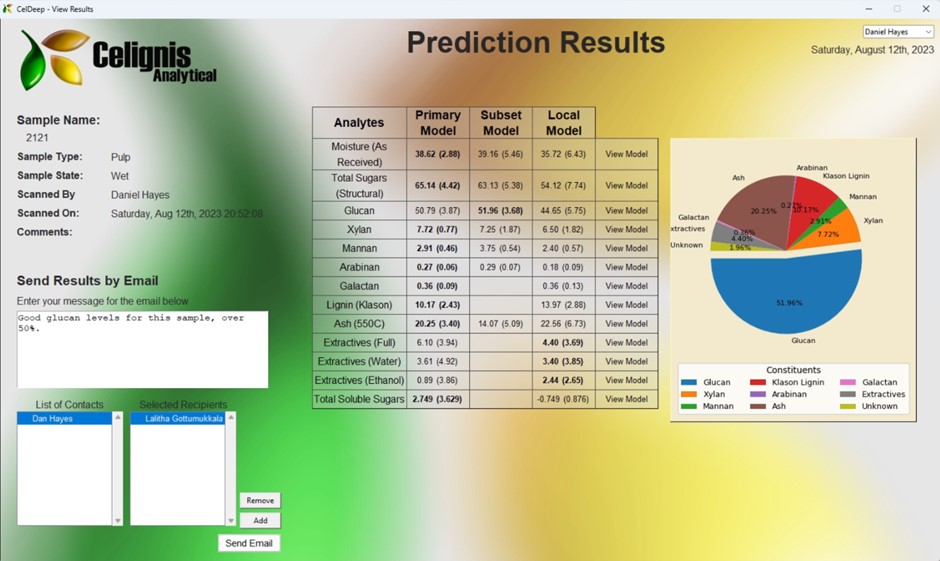
- Engineered polysaccharides with plant oils for animal fat replacement in the
food and cosmetics sectors - The Celignis bioprocess team are experts in
the extraction of polysaccharidess and their modification by enzymatic and chemical means. Carbohydrate-tailoring
of the polysaccharide, especially branched ones such as xylans, pectins, ulvans, and alginates, provide unique functionalities
such as emulsification and thickening abilities with high moisture-holding capacities. These properties allow the
use of plant oils in combination with polysaccharides to obtain the similar texture and feel of animal fat.
For vegan meat applications, these polysaccharides coat the fungal or plant-derived protein and provide better moisture-holding properties, reducing the dry mouth feel of the product.
For cosmetics and personal-care applications, animal-derived fats and waxes are used for regular skin care products. Polysaccharides can allow the use of plant oils in such products due to their ability to hold the plant oil in micro-emulsions forms and to provide thick cream-like textures with moisturising properties. This can substitute for the existing use of tallow, sourced from the beef industry, which is currently typically used to provide this functionality. - Techno-economics, process modelling & optimisations
- Celignis's process engineering and modelling team has years of experience in the analysis of biological and chemical processes
for technical and economic feasibility (TEA). The Celignis team can identify the possible high costing nodes of the process
through modelling in the early stages of the project and provide suggestions of improving the feasibility of the process.
The techno-economic analysis will be done iteratively during the course of the project by performing all the necessary sensitivity
analyses on key operational inputs and parameters, including the side streams valorisation or treatment.
Celignis’s Chief chemical engineer and Bioprocess head Oscar Bedzo has a PhD in chemical engineering with a focus on biomass fractionations and enzyme transformations. He has experience in working with large industry clients through public and private projects and leads the projects very smoothly. Currently, he is doing TEA work for a number of Celignis's private projects and also for the ongoing Horizon-Europe project EnXylaScope which is developing and demonstrating the production of 6 consumer products (personal care, feed/food) from three different feedstocks.
Celignis is also the partner for full TEA analysis for a successful CBE-JU 2023 proposal. That project (MANUREFINERY), which comprises 23 partners and 11 different technologies being proven at demonstration scale, will start in September 2024.
Celignis’s team of biomass valorisation and bioprocess experts support the TEA analysis and perform process optimisations based on their years of experience in biomass processing technology development. We are a world-renowned bioprocess development service provider and consultant for the bioeconomy. Having Celignis as a TEA and process optimisation partner in a consortium will bring this extensive expertise to the project. - Proposal Evaluation -
In 2020 Celignis was the primary writing partner in EnXylaScope,
a project specifically focused on the extraction of xylan and on its subsequent modification to be
suitable as a component in a range of consumer products. This proposal was successful, and the project
started in May 2021. In 2023 Celignis actively took part in writing a CBE-JU
Innovation Action project (BIONEER), together with the co-ordinator, and was
successful in securing funding.We were also in two other successful
CBE-JU proposals in the 2023 call. Additionally, Celignis's Lalitha and
Dan have worked for several years as
EU Expert Evaluators reviewing CBE-JU proposals and so understand
the differences between good proposals and the great ones that end up getting funded.
As a result of these experiences, plus our Full-Industry membership of the Biobased Industry Consortium (BIC), and due to our experience in offering research and technology development services related to industrial biotech processes, we have a good understanding of the current art in this topic and how an impactful proposal with strong Excellence and Impact can be developed. As a result, we will be happy, as part of our partner constributions towards a proposal, to put forward suggestions as to how a competitive proposal can be drafted.
Successful proposals will also contribute to the implementation of the EU Bioeconomy Strategy and the updated EU Industrial Strategy.
Project results should contribute to the following expected outcomes:
- Novel, scalable and more sustainable biotech production routes for bio-based and non-animal-derived chemicals and/or materials replacing animal-derived ones.
- Performance(s) of bio-based chemicals and/or materials meeting end users’ requirements for final products.
- Availability of safe and sustainable by design bio-based products.
- Positive socio-economic impacts along the value chain, from feedstock suppliers to chemicals and materials producers to end users.
- Social acceptance of circular bio-based solutions and products.
Animal derivatives are often characterised by a variable composition and pose sustainability issues due to land use for feed and animal breeding and related environmental footprint but also the animal welfare concerns.
There is a growing consumer awareness and drive to move away from animal-derived products in mass-market products. Moreover, the possible presence of pathogens is a critical issue which impacts safety and requires costly downstream purification.
Plant-based, fungi-, algae or microbial streams and related side-streams can provide a safer, more sustainable and consistent alternative.
- Develop biotech routes for sustainable bio-based alternatives to (a set of) animal-derived product(s). Define, develop and test the related biotech routes and subsequent downstream (separation, purification) up to pilot scale (TRL 5). While the focus of this action is on bio-based materials and/or chemicals, co-production of other bio-based ingredients (including for food and feed) is in scope, fulfilling the cascading approach for maximum valorisation of the feedstock. Any non animal-based biomass feedstock in the scope of the CBE JU is considered in scope for this topic.
- Characterise the properties of the resulting bio-based material(s)/chemical(s); address validation into final product(s) to test compatibility with market requirements.
- Assess the compatibility with relevant norms and regulations, including Health&Safety aspects when considering consumer applications.
- Include a task to integrate a prospective assessment based on the safe-and-sustainable-by-design (SSbD) framework, developed by the European Commission, for assessing the safety and sustainability of chemicals and materials. Under this context, projects are expected to contribute with and develop recommendations that can advance further the application of the SSbD framework.
- Perform a socio-economic impact assessment identifying challenges and opportunities across new and existing value chains.
- Involve end users starting from the early stages of development to assess market acceptance of the newly developed bio-based materials/products. When addressing consumer products, involve consumers in the testing and validation phase.
Proposals should also describe their contribution to the Specific CBE JU requirements, presented in section 2.2.3.1.
Proposals should seek for links and complementarities and avoid overlaps with past, ongoing and upcoming EU funded projects, including those funded under H2020, HEU and the BBI JU and CBE JU. Collaboration among projects from the same topic are encouraged.
| Type of Action | Research and Innovation Action. |
|---|---|
| Indicative Budget | The total indicative budget for the topic is EUR 7 million. |
| Expected EU Contribution per Project | It is estimated that a contribution of EUR 3.5 million would allow these outcomes to be addressed appropriately. Nonetheless, this does not preclude submission and selection of a proposal requesting different amounts. |
| TRL | TRL 4-5 at the end of the project. |
| Link to CBE JU Specific Objectives | 1.1: Increase the intensity of cross-disciplinary research and innovation activities. 1.2: Increase and integrate the research and innovation capacity of stakeholders across the Union. 1.3: Increase and integrate the research and innovation capacity for addressing environmental challenges and development of more sustainable bio-based innovations. |
| Link to CBE JU SRIA | 1.1.2: Develop innovative production systems in the bio-based industry. 1.3.2: Improve environmental performances of bio-based processes. 1.1.3: Develop innovative bio-based products. 3.1.3: Facilitate social acceptance of bio-based applications. |
| CBE JU KPIs | 2: Number of innovative bio-based value chains created or enabled based on sustainably sourced biomass. 4.1: Number of projects with innovative & sustainable processes that contribute to GHG emissions reduction. 4.2: Number of projects developing innovative & sustainable processes that improve on resource efficiency and zero-waste. 4.3: Number of projects developing innovative & sustainable processes enabling to address zero pollution. 4.5: Number of products with improved life cycle environmental performance. 6.1: Number of innovative bio-based dedicated outputs, with novel or significantly improved properties vs relevant alternatives. |
Pitches for Specific Topics in the 2024 CBE Call
Below we list a number of the topics in the CBE 2024 work programme in which we think we can play a valuable role. These topics cover: Research and Innovation Actions (RIA), Innovation Actions (IA), Flagships (IAFlag), and Coordinating and Supporting Actions (CAS).
Please click on the link for each topic to see more details on it and on the contributions that Celignis can make.
HORIZON-JU-CBE-2024-IA-01 – Bio-based materials and products for biodegradable in-soil applications
Celignis can make important contributions in a number of areas to this topic, including:
- Producing bio-degradable mulch films from organic waste and residues, leveraging our expertise in bio-polymer extraction and modification to create both liquid and solid mulch films suitable for large-scale applications;
- Conducting tests to determine the effects of bio-degradable mulch films on seed germination and plant growth, assessing improvements in soil properties;
- Leveraging our process engineering and economic analysis skills to identify cost-effective production methods, so enhancing the economic viability of bio-based mulch film manufacturing;
- Performing comprehensive biodegradability and eco-toxicity evaluations of the products in order to ensure environmental safety and compliance with biodegradation standards;
Click here to read more about the contributions we can make to this topic as well as to get some more information about the call.
Full Pitch...CBE2024-IA-01
HORIZON-JU-CBE-2024-IA-02 – Sustainable micro-algae as feedstock for innovative, added-value applications
The contributions that Celignis can make towards this topic are outlined in detail here and summarised below:
- Enhance the economic viability of algal biorefineries by developing a sequential extraction process for multiple products from residual biomass, leveraging our expertise from the ALGALVANISE project;
- Use enzyme cocktails for efficient and less energy-intensive extraction of compounds from algal biomass, leveraging our microbial culture collection for enzyme production;
- Provide detailed compositional data for microalgal feedstocks and products, enhancing process efficiencies and product quality;
- Reduce costs and enhance efficiencies in algal biorefinery operations, though technoeconomic analysis (TEA) backed-up by our extensive experience in bioprocess development.
- Employ rapid analysis NIR technologies to enhance process control and efficiency in algal biorefineries;
Click here to read more about the contributions we can make to this topic as well as to get some more information about the call.
Full Pitch...CBE2024-IA-02
HORIZON-JU-CBE-2024-IA-03 – Enlarging the portfolio of commercially produced bio-based SSbD solvents
Click here to read in detail regarding the contributions that Celignis can make towards this topic, which are summarised below:
- Demonstrate a cost-effective method for producing bio-based solvents through integrated fermentation and enzyme catalysis, targeting the production of polar and moderately-polar solvents for diverse industrial applications;
- Utilise second-generation sugars more cost-effectively for bio-based solvent production by applying a Xylan-first approach in our biomass fractionation process, allowing for a lowering in production costs;
- Based on our expertise in anaerobic fermentation, we can optimize the production of bio-based solvents by focusing on process enhancements to direct carbon flux towards desired solvent production, without genetic modifications;
- Enhance the economic feasibility and efficiency of bio-based solvent production processes through techno-economic analysis and process optimisation;
Click here to read more about the contributions we can make to this topic as well as to get some more information about the call.
Full Pitch...CBE2024-IA-03
HORIZON-JU-CBE-2024-IA-04 – Circular and SSbD bio-based construction & building materials with functional properties
Some of the ways in which Celignis can contribute to this topic are detailed here and summarised below:
- Evaluate biochar and biopolymers for use in construction materials, leveraging our analytical expertise to test suitability and standardise product consistency for construction applications;
- Developing engineered polysaccharides as polymer additives for cement, building on our polysaccharide modification work in the PERFECOAT and EnXylaScope projects;
- Developing alginate and cellulose-based foams for biodegaradable insulation materials, with potential for customisation in physical properties through enzymatic and chemical modifications;
- Providing techno-economic analysis and process optimization support, facilitating the development of cost-effective and efficient bio-based construction material production processes.
Click here to read more about the contributions we can make to this topic as well as to get some more information about the call.
Full Pitch...CBE2024-IA-04
HORIZON-JU-CBE-2024-IA-05 – Selective and sustainable (co)-production of lignin-derived aromatics
Celignis is a partner in BIONEER, a CBE-JU Innovation Action project that was successful in the 2023 call for TRL 6/7 production of (non-aromatic) platform chemicals. We see CBE-2024-IA-05 as highly compatible with that project as we can also demonstrate platform chemicals production from the lignin fraction of the BIONEER processes. Celignis can make several important contributions to this topic, detailed here and summarised below:
- Produce aromatics using partially depolymerized lignin from our EnXylaScope/BIONEER process, which we believe to be an ideal feedstock for aromatic production due to its clean, unique form;
- Developing the microbial production of lignin-derived aromatics, like vanillin from ferulic acid, through collaborating with genetic engineering partners in the project;
- Demonstrating an enzyme-assisted process to extract and fractionate high-value aromatics from lignin, offering a novel, low-energy route for lignin valorisation;
- Applying rapid analysis and process optimisations to improve efficiencies, building on our successes in the CBE-JU project VAMOS.
Click here to read more about the contributions we can make to this topic as well as to get some more information about the call.
Full Pitch...CBE2024-IA-05
HORIZON-JU-CBE-2024-IA-06 – Innovative bio-based adhesives and binders for circular products meeting market requirements
Some of the ways in which Celignis can contribute to this topic are detailed here and summarised below:
- Utilise our unique, partially depolymerized, lignin, obtained through an enzymatic process, to develop high-functionality, low-molecular-weight epoxy resins for adhesive applications;
- Engineer chitosan from second-generation sugars for adhesives, applying chemical and enzymatic modifications that are-being/will-be used in other CBE-JU projects for products in the personal care and coatings sectors;
- Developing and demonstrating xylan-based adhesives by functionalising the xylan and adhesives based on functionalised xylans and lignins cross-linked through chemical agents. Xylan and lignin-based adhesives provide the required rheology and better flow properties compared with cellulose;
- Leveraging our process engineering and techno-economic analysis skills to improve the feasibility and to optimise the bio-based adhesive production processes;
Click here to read more about the contributions we can make to this topic as well as to get some more information about the call.
Full Pitch...CBE2024-IA-06
HORIZON-JU-CBE-2024-IA-07 – Innovative conversion of biogenic gaseous carbon into bio-based chemicals, ingredients, materials
The strong fermentation expertise of the Celignis team allows us to contribute to projects in this topic in several areas, detailed here, with short summaries listed below:
- Transforming volatile fatty acids (VFAs) and CO2 into longer-chain fatty acids;
- Undertaking Clostridial gas fermentations to produce acids and solvents, involving process optimisations supported by constant analytical monitoring from lab-scale towards scaled-up experiments;
- Enriched CO2-utilising acetogens culture for the conversion of carbon-dioxide to acetic acid;
Click here to read more about the contributions we can make to this topic as well as to get some more information about the call.
Full Pitch...CBE2024-IA-07
HORIZON-JU-CBE-2024-RIA-01 – Valorisation of polluted/contaminated wood from industrial and post-consumer waste streams
Celignis can make important contributions in a number of areas to this topic, detailed here and listed below:
- Contaminated wood valorisation to produce biobased wood coatings, building on our EnXylaScope fractionation technology and our PERFECOAT process for the production of coatings;
- Developing enzyme-based solutions for detoxifying contaminated wood, making it suitable for biorefinery applications by mimicking natural microbial processes;
- Analyze contaminated wood to identify heavy metal contaminants and develop biobased solutions for decontamination, enhancing the wood's suitability for various valorisation routes;
- Utilise our NIR expertise for the rapid analysis of contaminated wood, developing feedstock-specific NIR models to improve process control and decision-making;
- With our strong background in techno-economics and process optimization, we can identify cost reduction opportunities and enhance the feasibility of converting contaminated wood into valuable biobased products.
Full Pitch...CBE2024-RIA-01
HORIZON-JU-CBE-2024-RIA-02 – Biotech routes to obtain bio-based chemicals/ materials replacing animal-derived ones
Some of the contributions that Celignis can make to this project are detailed here and listed below:
- Engineered polysaccharide composites for replacement of animal derived products in the clothing and comfort sectors;
- Microbial and/or engineered plant polysaccharides to replace animal-derived gelatin;
- Engineered polysaccharides with plant oils to mimic the texture and functionalities of animal fats in food and cosmetics, enhancing moisture-holding properties and providing a vegan option;
- Using techno-economic analysis to identify cost-effective and efficient production routes for bio-based alternatives to animal-derived products;
Full Pitch...CBE2024-RIA-02
HORIZON-JU-CBE-2024-RIA-03 – Sustainable, bio-based alternatives for crop protection
Click here to read in detail how Celignis can contribute to projects in this topic. These potential contributions are also summarised below:
- Use of agricultural and forestry residues for the production of crude extracts as plant protectants, isolating polyphenols/flavonoids and leveraging our existing biomass fractionation processes for more sustainable extractions;
- Use microbial and fungal extracts as biopesticides, with a focusing on isolating and purifying the active compounds from promising strains for effective plant protection;
- Optimising the extraction and purification of potent plant metabolites, like tri-terpenoids, for their anti-microbial properties, aiming to improve the sustainability of the purification process;
- Using xylan-derived hydrogels for the encapsulation and controlled release of plant protectants.
Full Pitch...CBE2024-RIA-03
HORIZON-JU-CBE-2024-RIA-04 – SSbD bio-based coating materials for applications under demanding and/or extreme conditions
Click here for detailed descriptions on how Celignis can contribute to projects in this topic. These potential contributions are also listed below:
- Develop hydrophobic xylan- and xylose-based polymers for furniture coatings, aiming to extend their application to textiles for enhanced hydrophobicity and stain resistance.;
- Synthesize biobased polymers with anti-microbial and anti-fouling properties using zwitterionic molecules, targeting a variety of surfaces;
- Modifying lignins for water-based coatings, focusing on high-performance applications in construction and anti-fouling;
Full Pitch...CBE2024-RIA-04
HORIZON-JU-CBE-2024-RIA-05 – Innovative bio-based food/feed ingredients
Our potential contributions are outlined in detail here and summarised below:
- Extracting and purifying RuBisCo for its nutritional properties, aiming to develop a cost-effective purification strategy to enhance its digestibility and functional benefits;
- Using xylan hydrogels for the efficient storage and delivery of pre- and post-biotics, aiming to overcome the limitations of current delivery systems and enhance the viability of probiotics;
- Using native and enzymatically-modified xylans as food and feed ingredients, particularly for their water-holding capacity and synergy with other food formulations;
- With our extensive expertise in techno-economic analysis and process optimisation, Celignis can help to make the production of bio-based food and feed ingredients more sustainable and economically viable.
Full Pitch...CBE2024-RIA-05
HORIZON-JU-CBE-2024-IAFlag-01 – Bio-based value chains for valorisation of sustainable oil crops
Listed below are some contributions that Celignis can make to this topic, click here to read about these in more detail.
- Detailed characterisation of oil crop feedstocks, processing outputs, and residues;
- Perform TEA and optimization studies to identify cost drivers and propose solutions to enhance the feasibility and sustainability of using oil crops in biorefineries;
- Provide rapid, on-the-go analytical data for process control, enhancing responsiveness and optimisation in processing oil crops for bio-based applications.
Click here to read more about the contributions we can make to this topic as well as to get some more information about the call.
Full Pitch...CBE2024-IAFlag-01
HORIZON-JU-CBE-2024-IAFlag-02 – Bio-based dedicated platform chemicals via cost-effective, sustainable and resource-efficient conversion of biomass
Click here to read in detail on Celignis's potential contributions to this topic, which are summarised in the list below:
- Process Optimization Support - Combining bioprocess development expertise with compositional analysis capabilities, we can contribute towards improvements in products yields and qualities, also focusing on the valorization of side streams for a more sustainable production process;
- Techno-Economic Analysis and Process Modelling: To identify cost-reduction opportunities and enhance the sustainability and efficiency of the bio-based chemical production process;
- Compositional Analysis: Leveraging extensive experience, Celignis can provide in-depth compositional analyses aiding in understanding feedstocks, process streams, and product characteristics crucial for optimising bio-based chemical production;
- Rapid Analysis Methods: Utilizing advanced NIR models and expertise, Celignis can offer rapid analysis for real-time process control, enhancing efficiency and decision-making in the production of bio-based chemicals.
Click here to read more about the contributions we can make to this topic as well as to get some more information about the call.
Full Pitch...CBE2024-IAFlag-02
HORIZON-JU-CBE-2024-IAFlag-03 – Bio-based value chains for valorisation of sustainable natural fibre feedstock
Below are listed some of our potential contributions to projects under this topic, click here to read about these in more detail.
- Compositional Analysis: Celignis's extensive experience in compositional analyses of diverse biomass types will ensure accurate characterisation of feedstocks and by-products, crucial for optimizing fibre yield, quality, and sustainability within the bio-based value chains;
- Rapid Analysis Methods: Leveraging Celignis’s NIR expertise for real-time process control will enhance feedstock variability management, critical for the efficient production of sustainable fibres and ensuring their consistent quality for bio-based applications;
- Process Optimisation Support: Combining Celignis's bioprocess development services with our compositional analysis expertise, we can help to optimise biorefinery processes, enhancing yield, and quality while focusing on the sustainability and valorization of side-streams for fibre production.
- Techno-Economic Analysis: Our involvement in TEA will help to advance the project's commercial viability, focusing on reducing costs and enhancing the sustainability of fibre production.
Click here to read more about the contributions we can make to this topic as well as to get some more information about the call.
Full Pitch...CBE2024-IAFlag-03
HORIZON-JU-CBE-2024-CSA-01 – New forms of cooperation in agriculture and the forest-based sector
Our experience in the CSA project ENABLING puts us in good stead for participation in this topic. Click here to read in detail about some of our potential contributions, which are listed below:
- Feedstock Composition and Availability Survey: We can provide detailed characterisation and availability data for underutilised biomass, leveraging its extensive database and experience from the ENABLING project to enhance biomass supply chain knowledge and support bio-based product development;
- Biomass Process Flows: Utilizing mathematical models developed for the ENABLING project, we can estimate the potential production capacities for biochemicals and biopolymers from various feedstocks, aiding in the optimization of bio-based value chains;
- Policy Development: Drawing on our involvement in the EnXylaScope project, we are equipped to review and recommend policy changes that encourage the use of bio-based alternatives, supporting the objectives of fostering a more sustainable and circular bioeconomy.
Full Pitch...CBE2024-CSA-01
HORIZON-JU-CBE-2024-CSA-02 – Mobilize inclusive participation in bio-based systems and supporting the CBE JU widening strategy and its action plan
Celignis has experience in participating in CSA projects with similar targets to this topic. We believe we can make important contributions in a number of areas, including those listed below.
- Knowledge Exchange and Start-up Experience - Celignis, originating from an EU-funded project and growing into a global bioeconomy service provider, can share valuable insights on transitioning research to commercial success. This experience, though from Ireland (outside the CBE-JU widening strategy countries), offers valuable knowledge exchange and guidance to newcomers, particularly from industries in underrepresented countries;
- Horizon Europe Participation Advice: Celignis's active involvement in numerous EU-funded projects, including successful participation in recent CBE-JU calls, positions us as a valuable resource for sharing best practices on EU proposal participation. We can facilitate the creation of an online platform for exchanging best practices and providing training, significantly benefiting stakeholders from underrepresented countries and regions looking to engage more effectively in the CBE-JU program and Horizon Europe calls.
Full Pitch...CBE2024-CSA-02
HORIZON-JU-CBE-2024-CSA-03 – Supporting the CBE JU Deployment Group on Primary Producers
Below are listed some of our potential contributions to this topic, which are discussed in more detail here.
- Access to Celignis's network of primary producers and biobased industries - Our established connections with primary producers and bio-based industries across Europe can aid action plan development;
- Technology expertise - We can bring to the consortium the benefits of a Full-Industry Biobased Industries Consortium (BIC) member that understands the commercial considerations related to matching the right technologies and logistical structures with primary producers and the biobased industry players in Europe;
- Training and Support - Provide on-site training, educational materials, and coaching to enhance stakeholder knowledge of bio-based value chains and support primary producer understanding of alternative revenue streams.
Full Pitch...CBE2024-CSA-03
The Value Celignis Can Bring to a CBE Project
Extraction of Hemicellulose Polysaccharides
Celignis is the technical lead in the €6m Horizon Europe project EnXylaScope which focuses on the efficient extraction of xylan, the most abundant hemicellulose polysaccharide, and its subsequent modification to confer properties that make it suitable as an ingredient in a scope of consumer products. In the CBE/BBI project PERFECOAT Celignis is also working on extraction of xylan, from different feedstocks, so that it can ultimately be used as a binder in paints and coatings. In the CBE-JU Innovation Action project BIONEER, due to start in June 2024, we will be scaling-up to TRL7 (1.5m3 reactor-scale) the xylan extraction process developed in these projects. We consider that integrating efficient methods for extracting hemicellulose polymers within the wider biorefinery process scheme will allow for higher-value products and a more sustainable and profitable process.
Our expertise in hemicellulose extraction is therefore relevant to a large number of topics within the CBE-JU 2024 Work Programme, in particular:
- HORIZON-JU-CBE-2024-IA-01 (Bio-Based Materials And Products For Biodegradable In-Soil Applications);
- HORIZON-JU-CBE-2024-IA-03 (Enlarging The Portfolio Of Commercially Produced Bio-Based SSbD Solvents);
- HORIZON-JU-CBE-2024-IA-04 (Circular and SSbD Bio-Based Construction and Building Materials with Functional Properties);
- HORIZON-JU-CBE-2024-IA-05 (Selective and Sustainable (Co)-Production Of Lignin-Derived Aromatics);
- HORIZON-JU-CBE-2024-IA-06 (Innovative Bio-Based Adhesives and Binders for Circular Products Meeting Market Requirements);
- HORIZON-JU-CBE-2024-RIA-01 (Valorisation of Polluted/Contaminated Wood from Industrial and Post-Consumer Waste Streams);
- HORIZON-JU-CBE-2024-RIA-02 (Biotech Routes to Obtain Bio-Based Chemicals/Materials Replacing Animal-Derived Ones);
- HORIZON-JU-CBE-2024-RIA-03 (Sustainable, Bio-Based Alternatives for Crop Protection);
- HORIZON-JU-CBE-2024-RIA-04 (SSbD Bio-Based Coating Materials for Applications Under Demanding and/or Extreme Conditions);
- HORIZON-JU-CBE-2024-RIA-05 (Innovative Bio-Based Food/Feed Ingredients);
| Related Projects | ||||
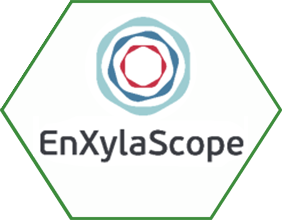 |
 |
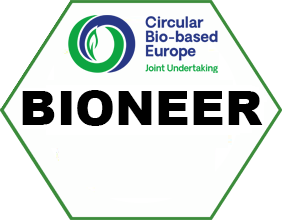 |
||
Modification of Polysaccharides
At Celignis we also have extensive experience in such modifications using both enzymatic and chemical approaches. For example, in the Horizon Europe project EnXylaScope we are active in the discovery and application of enzymes for the debranching of xylan and for its subsequent modification for additional functionalities. In the CBE/BBI project PERFECOAT the focus is on the chemical modification of xylan in order to enhance its properties for application as a binder in paints and coatings. We consider that integrating efficient methods for extracting hemicellulose polymers within the wider biorefinery process scheme will allow for higher-value products and a more sustainable and profitable process.
In PERFECOAT we are also working on the extraction and modification of chitosan, from prawn shells, whilst we have also internally worked on processes focused on the extraction and modification of pectin. Additionally, as outlined in the video below, we have developed processes for the modification of seaweed-derived alginate to confer the desired physicochemical properties.
In the CBE-JU Innovation Action project BIONEER, due to start in June 2024, we will be scaling-up to TRL7 (1.5m3 reactor-scale) many of the polysaccharide modification approaches described above.
The ability to selectively and cost-effectively modify polymers is a key component of many topics in the CBE-JU 2024 Work Programme, in particular:
- HORIZON-JU-CBE-2024-IA-01 (Bio-Based Materials And Products For Biodegradable In-Soil Applications);
- HORIZON-JU-CBE-2024-IA-03 (Enlarging The Portfolio Of Commercially Produced Bio-Based SSbD Solvents);
- HORIZON-JU-CBE-2024-IA-04 (Circular and SSbD Bio-Based Construction and Building Materials with Functional Properties);
- HORIZON-JU-CBE-2024-IA-05 (Selective and Sustainable (Co)-Production Of Lignin-Derived Aromatics);
- HORIZON-JU-CBE-2024-IA-06 (Innovative Bio-Based Adhesives and Binders for Circular Products Meeting Market Requirements);
- HORIZON-JU-CBE-2024-RIA-01 (Valorisation of Polluted/Contaminated Wood from Industrial and Post-Consumer Waste Streams);
- HORIZON-JU-CBE-2024-RIA-02 (Biotech Routes to Obtain Bio-Based Chemicals/Materials Replacing Animal-Derived Ones);
- HORIZON-JU-CBE-2024-RIA-03 (Sustainable, Bio-Based Alternatives for Crop Protection);
- HORIZON-JU-CBE-2024-RIA-04 (SSbD Bio-Based Coating Materials for Applications Under Demanding and/or Extreme Conditions);
- HORIZON-JU-CBE-2024-RIA-05 (Innovative Bio-Based Food/Feed Ingredients);
| Related Projects | |||
 |
 |
 |
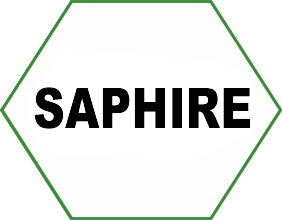 |
Identification, Extraction, and Purification of High Value Chemicals in Biomass
At Celignis, we can play important roles at all stages in the valorisation of such compounds, starting from their identification and ending in their purification and the testing and modification of their functional and chemical properties. For identification, we firstly get a crude extract from the feedstock, obtained via various approaches, including pressurised liquid extraction. This extract is then profiled using our top-range QTOF-LC/MS system (Agilent iFunnel 6550), which can identify constituents to the femtogram-level, and the spectra and chromatograms reviewed by Sajna, our Bioanalysis Developer. If necessary, we can collect the relevant fractions from the LC system and confirm the identification using a number of different chemical and spectroscopic techniques. We then determine which constituents warrant extraction and then work on optimising a targeted extraction method. This method considers not only the yield of the target compound(s) but also the chemical and energy costs of the process and the implications for the downstream processing and valorisation of the solid residue, evaluated by Oscar, our technoeconomics analysis (TEA) expert. We subsequently work on the isolation and purification of the targeted compound(s) from this extract, again considering the commercial and scale-up implications.
Celignis undertook such an approach in the CBE/BBI project UNRAVEL where the extractives of 25 feedstocks were profiled using QTOF-LC/MS. We identified betulin in birch bark as the most attractive compound and subsequently worked on developing an optimised extraction protocol and an isolation/purification process scheme that offered several advantages, in terms of sustainability and safety, over the current art. Click here for a news article on this work. We are also using employing our compositional analysis and purification expertise in the Horizon Europe project SteamBioAfrica where we evaluate and process the liquid condensate obtained from the steam torrefaction process and consider market applications for its constituents, fractions, and derivatives.
Our high-value-chemicals expertise is of particular value for improving the competitiveness of a biorefinery process, through employing the principle of the cascading use of biomass. For example, a relatively minor component of biomass can substantially improve the financial viability of a technology if it can be sold at a high price. As a result, such an approach can make important contributions to a number of the 2024 topics, such as:
- HORIZON-JU-CBE-2024-RIA-02 (Biotech Routes to Obtain Bio-Based Chemicals/ Materials Replacing Animal-Derived Ones);
- HORIZON-JU-CBE-2024-RIA-03 (Sustainable, Bio-Based Alternatives for Crop Protection);
- HORIZON-JU-CBE-2024-RIA-05 (Innovative Bio-Based Food/Feed Ingredients);
- HORIZON-JU-CBE-2024-IA-02 (Sustainable Micro-Algae As Feedstock For Innovative, Added-Value Applications);
| Related Projects | |
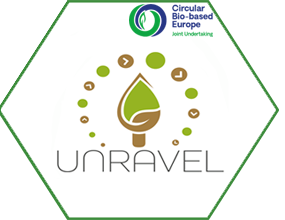 |
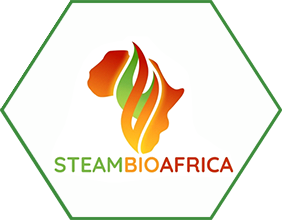 |
Real-Time Analysis of Feedstocks and Process Outputs
Our NIR and software development expertise was demonstrated at-scale in the recently-completed CBE-JU Innovation Action project VAMOS. At the demo-scale facility in Swansea, UK, we installed NIR equipment and deployed our latest software, "CelDeep", for at-line analysis by biorefinery operators. The VAMOS project allowed us to extend the reach of our predictive models beyond our own laboratories and into the global biorefinery landscape.

We see many opportunities, within the 2024 CBE-JU topics, to apply and refine this at-line analysis system to other IA projects as well as for Flagship projects. In addition, we also plan for the deployment of in-line analyses, using Celignis-developed models, using the latest state-of-the-art and cost-effective hardware on the market.
While there are numerous options currently on the market for NIR hardware, there is no robust solution currently available for the at-line/in-line analysis of lignocellulosic feedstocks and process outputs/residues. This is due to the complexity of such analysis, the difficulties often faced in getting precise and representative data, and the widely varying outputs of different biomass processing technologies. At Celignis, however, we have years of expertise in getting precise lignocellulosic data and in using these data as inputs to our chemometric tools. As a result Celignis provides full vertical integration regarding advancing the art in rapid biomass analysis and the utilisation of biorefinery data.
Our abilities to develop on-site rapid analysis solutions are applicable to many of the Innovation Action and Flagship topics of the 2024 CBE-JU Work Programme, including:
- HORIZON-JU-CBE-2024-IAFlag-01 (Bio-Based Value Chains for Valorisation of Sustainable Oil Crops);
- HORIZON-JU-CBE-2024-IAFlag-02 (Bio-Based Dedicated Platform Chemicals via Cost-Effective, Sustainable and Resource-Efficient Conversion of Biomass);
- HORIZON-JU-CBE-2024-IAFlag-03 (Bio-Based Value Chains for Valorisation of Sustainable Natural Fibre Feedstock);
- HORIZON-JU-CBE-2024-IA-02 (Sustainable Micro-Algae As Feedstock For Innovative, Added-Value Applications);
- HORIZON-JU-CBE-2024-IA-02 (Sustainable Micro-Algae As Feedstock For Innovative, Added-Value Applications);
- HORIZON-JU-CBE-2024-RIA-01 (Valorisation of Polluted/Contaminated Wood from Industrial and Post-Consumer Waste Streams);
| Related Projects | |||
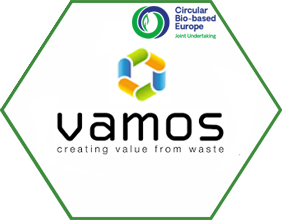 |
 |
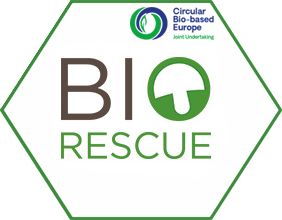 |
 |
Compositional Analysis
We have an wide array of equipment that allow us to obtain the required compositional data, including an extensive chromatography laboratory that includes state-of-the-art equipment, such as our QTOF-LC/MS system.
Our in depth understanding of the steps involved in the processing of biomass also allow us to bring forward suggestions to other partners in the consortium, based on the analytical data we obtain, on how the project's technologies can be improved.
Our expertise in compositional analysis, and in the understanding and process implications of compositional data, is relevant to all of the RIA, IA, and IAFlag topics of the 2024 CBE-JU Work Programme.
| Related Projects | ||||
 |
 |
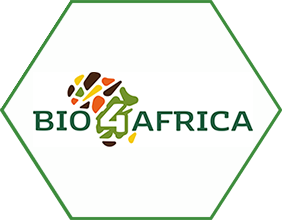 | ||
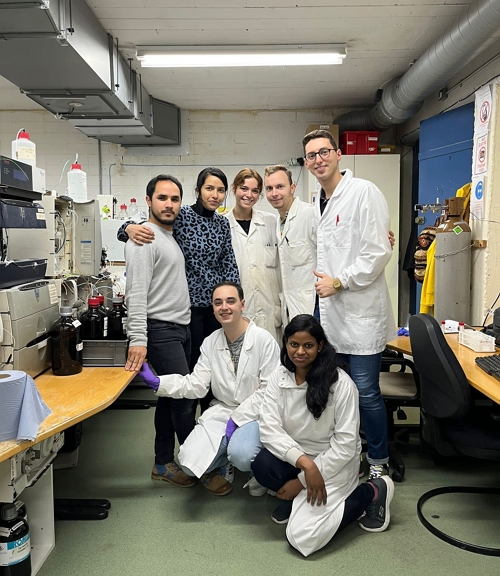
Fermentation Optimisation
With our CIO Lalitha and our Bioanalysis Developer Sajna we have the expertise and knowledge to optimise fermentation processes for high yield and productivity in short-time. Our personnel have proven scientific records in producing enzymes, biofuels, biosurfactants, exopolysaccharides and prebiotics through aerobic and anaerobic fermentation processes.
Celignis also has numerous bioreactors, ranging from 1 litre to 1.5m3 litres capacity, that allow us to undertake an extensive DoE approach in optimising fermentations.
Our expertise in fermentation is particularly relevant to the following topics of the 2024 CBE-JU Work Programme:
- HORIZON-JU-CBE-2024-IA-05 (Selective and Sustainable (Co)-Production Of Lignin-Derived Aromatics);
- HORIZON-JU-CBE-2024-IA-07 (Innovative Conversion of Biogenic Gaseous Carbon into Bio-Based Chemicals, Ingredients, Materials);
- HORIZON-JU-CBE-2024-RIA-01 (Valorisation of Polluted/Contaminated Wood from Industrial and Post-Consumer Waste Streams);
- HORIZON-JU-CBE-2024-RIA-02 (Biotech Routes to Obtain Bio-Based Chemicals/ Materials Replacing Animal-Derived Ones);
- HORIZON-JU-CBE-2024-RIA-03 (Sustainable, Bio-Based Alternatives for Crop Protection);
| Related Projects | |
 |
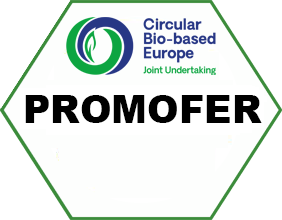 |
Discovery and Use of Enzymes
The discovery of enzymes needs rapid analysis methods and, by understanding the action of enzymes and the changes that occur in the substrate, the Celignis team can develop simple high-throughput screening methods for the discovery of enzymes. This is currently being undertaking in EnXylaScope for xylan side-chain acting enzymes.
Celignis is also discovering enzymes and designing enzyme cocktails for lignocellulose deconstruction aiming at production of monomeric and oligomeric sugars and for generating clean lignin for lignin valorisation purposes. We are undertaking the scaled-up (1.5 m3 reactor-scale) deconstruction of lignocellulosic biomass to sugars as part of the CBE-JU Innovation Action project PROMOFER, which will start in July 2024.
As part of our STEAME project we are also isolating the microbes that have the ability to produce a cocktail of enzymes for increasing the productivity and yields of biogas from complex recalcitrant streams such as late cut grass, wheat straw and garden waste.
Celignis follows traditional methods in enzyme screening allowing the isolation of natural enzyme producers which means that enzyme cocktails developed by Celignis are non-recombinant in nature. The enzymes discovered are studied for various characteristics such as nature of protein (Molecular weight, hydrophobicity); kinetics (reaction and inhibition); optimum reaction conditions etc. Celignis has a collection of around 200 strains capable of producing a range of enzymes that act on a variety of substrates.
Our expertise in enzymes is particularly relevant to the following topics of the 2024 CBE-JU Work Programme:
- HORIZON-JU-CBE-2024-IA-02 (Sustainable Micro-Algae As Feedstock For Innovative, Added-Value Applications);
- HORIZON-JU-CBE-2024-IA-03 (Enlarging The Portfolio Of Commercially Produced Bio-Based SSbD Solvents);
- HORIZON-JU-CBE-2024-RIA-01 (Valorisation of Polluted/Contaminated Wood from Industrial and Post-Consumer Waste Streams);
- HORIZON-JU-CBE-2024-RIA-02 (Biotech Routes to Obtain Bio-Based Chemicals/ Materials Replacing Animal-Derived Ones);
- HORIZON-JU-CBE-2024-RIA-03 (Sustainable, Bio-Based Alternatives for Crop Protection);
- HORIZON-JU-CBE-2024-RIA-05 (Innovative Bio-Based Food/Feed Ingredients);
| Related Projects | ||||
 |
 |
 |
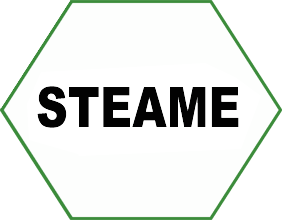 | |
Anaerobic Digestion and Fermentation
Celignis is using this expertise in the development of an advanced anaerobic digestion process design (STEAME) that allows high volumetric productivity and yields. This is being done as part of a nationally-funded project. In this process, the thermophilic nature of archaea is taken advantage of together with the ability of Clostridia to digest complex feedstocks. In STEAME Celignis is using expertise in biomass pretreatment together with microbial and enzyme expertise to enhance the anaerobic digestion of late-cut grass, wheat straw and other complex-recalcitrant agricultural residues.
Celignis also provides services for biomethane potential (BMP) determination; anaerobic toxicity assays; specific hydrolytic, acidogenic and methanogenic potential using its 90 1L anaerobic digestion reactors. Celignis has also the reactor set-up for continuous anaerobic digestion and sequential continuous anaerobic digestion that allows two stage and multi-stage digestion. Additionally, the Celignis team also has strong expertise in the valorisation and treatment of food industry effluent streams and is providing consultancy for three years for the operation of high-rate digesters that process 60 m3/h of dairy industry waste streams. This expertise is of particular value in EU projects where zero-pollution is the process target.
Our AD experience is particularly relevant to the following topics of the 2024 CBE-JU Work Programme:
- HORIZON-JU-CBE-2024-IA-01 (Bio-Based Materials And Products For Biodegradable In-Soil Applications);
- HORIZON-JU-CBE-2024-IA-03 (Enlarging The Portfolio Of Commercially Produced Bio-Based SSbD Solvents);
- HORIZON-JU-CBE-2024-IA-07 (Innovative Conversion Of Biogenic Gaseous Carbon Into Bio-Based Chemicals, Ingredients, Materials);
| Related Projects | |
 |
 |
Biomass Pretreatment and Fractionation
Additionally, in July 2024 the CBE-JU Innovation Action project PROMOFER will start. In that project Celignis is resposible for the at-scale (1.5m3 reactor-scale, equivalent to TRL7) pretreatment and hydrolysis of lignocellulosic biomass in order to provide second-generation sugars to other partners in the consortium. We will also be involved in optimising downstream stages of the process so that the sugars delivered to the project partners will be suitable for fermentation.
Our pre-treatment/fractionation expertise is particularly relevant to the following topics of the 2024 CBE-JU Work Programme:
- HORIZON-JU-CBE-2024-IA-02 (Sustainable Micro-Algae As Feedstock For Innovative, Added-Value Applications);
- HORIZON-JU-CBE-2024-IA-03 (Enlarging The Portfolio Of Commercially Produced Bio-Based SSbD Solvents);
- HORIZON-JU-CBE-2024-IA-05 (Selective and Sustainable (Co)-Production Of Lignin-Derived Aromatics);
- HORIZON-JU-CBE-2024-RIA-01 (Valorisation of Polluted/Contaminated Wood from Industrial and Post-Consumer Waste Streams);
- HORIZON-JU-CBE-2024-RIA-02 (Biotech Routes to Obtain Bio-Based Chemicals/ Materials Replacing Animal-Derived Ones);
- HORIZON-JU-CBE-2024-RIA-03 (Sustainable, Bio-Based Alternatives for Crop Protection);
| Related Projects | ||||
 |
 |
 |
 |
|
Process Flow Diagrams and Techno-Economic Analysis of the Process
Celignis is developing PFDs and performing TEA for the Horizon Europe project EnXylaScope, where the analysis is being performed for enzyme production, extraction of xylans, and use of enzymes for the modification of xylans.
Additionally, Celignis is the key TEA partner for the CBE-JU Innovation Action project MANUREFINERY, which will start in September 2024.
Our TEA expertise is relevant to all RIA, Innovation Action, and Flagship topics in the 2024 CBE-JU Work Programme.
| Related Projects | |
 |
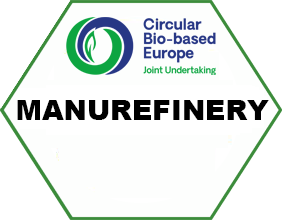 |
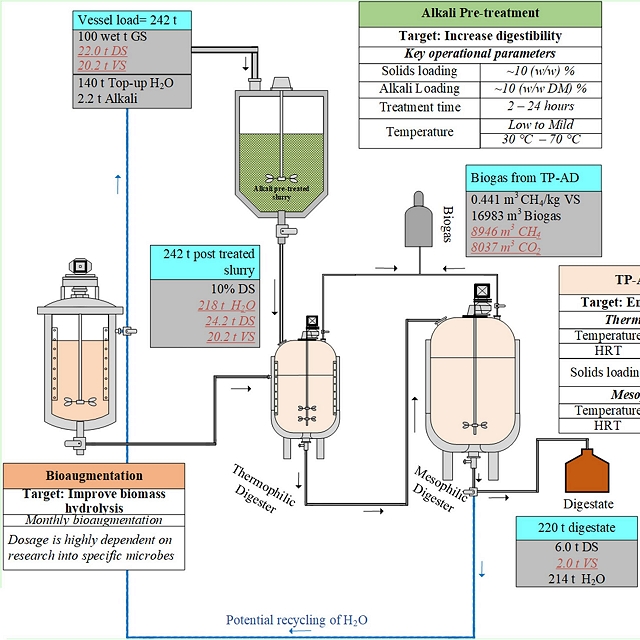
Successful Proposal Writing and Proposal Evaluation
In 2023 Celignis was invited to large number of consortia for CBE-JU proposals and we actively contibuted towards the writing process for these projects. As a result, we celebrated a number of successes when the results were announced in January 2024.
In addition, both Lalitha and Dan have, for a number of years, been Expert Evaluators for proposals submitted to the BBI-JU (the precursor to the CBE-JU). As a result we have a good understanding of what makes a good proposal and what will improve the chances of a project being funded, hence we can give valued advice to proposal coordinators regarding the direction and focus of a proposal.
| Successful EU Proposals Primarily Written By Celignis Personnel | |||
 |
 |
 |
 |
Go Back to Research Projects page.





